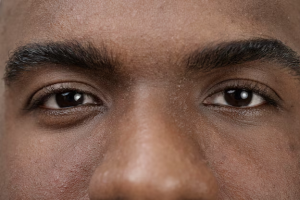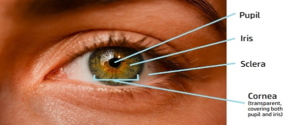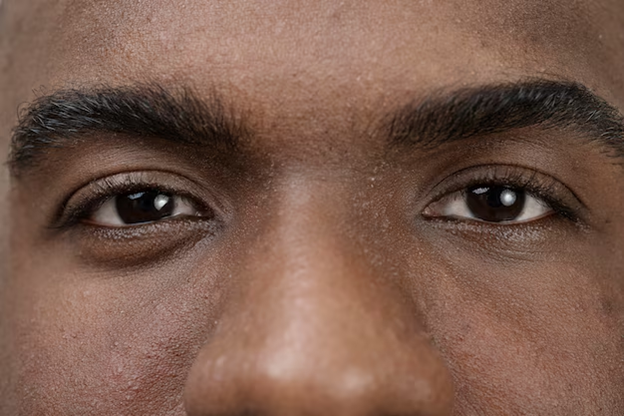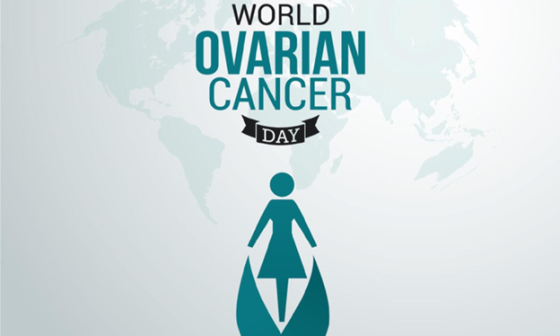Introduction
Eye problems comprise illnesses that affect various parts of the eye, including the cornea, conjunctiva, and retina. If problems that affect the eye are not managed adequately, it can result in loss of vision or total blindness. Understanding the different types of eye problems and diseases that can result in loss of vision is important for early detection, effective treatment, and effective management. All diseases, whether common (refractive problems, glaucoma, cataracts) or rare (uveal coloboma), require specialized care to achieve adequate results and reduce the incidence of blindness.

Source: Freepik
Wellahealth remains your number one health coverage partner for your general health and even your eyes. We offer affordable health plans that cover consultations and specialized care for you and your family, to subscribe to any of our plans- send us a message today!
Common Eye Problems
Some of the most common eye concerns in Nigeria according to a study are refractive errors, cataracts, diabetic retinopathy, glaucoma, conjunctivitis (pink eye), lid disorders, and corneal scarring. Other common eye disorders include- strabismus (crossed eyes), amblyopia, dry eye syndrome, keratoconus, amblyopia, age-related macular degeneration, blepharitis, retinal detachment, and uveitis.

Source: Eye Anatomy by Feye
In this article, we will discuss 6 common eye disorders affecting Nigerians:
Refractive errors
Refractive errors present as blurry vision, difficulty seeing at night, difficulty seeing far or near things, eye strain, and headaches. Nigeria has a high prevalence of refractive defects, such as astigmatism, hyperopia (farsightedness), nearsightedness (myopia), and presbyopia. These disorders cause blurry vision because the eye cannot concentrate light adequately on the retina. Its cause is due to excessive screen time, bad reading habits, and limited access to corrective eyewear amongst others.
Cataracts
A common eye condition in Nigeria, cataracts are caused by the natural lens of the eye becoming clouded, eventually resulting in blindness if left untreated. Age, prolonged sun exposure, and nutritional deficiencies are some of the factors that contribute to cataract development. Generally, cataracts present as sensitivity to light, blurry or foggy vision, colour fading, and nighttime vision problems. In Nigeria, cataracts are frequently made worse by limited access to healthcare services, which can cause delays in diagnosis and treatment.
Conjunctivitis
Conjunctivitis, sometimes referred to as “pink eye,” is an inflammation of the conjunctiva, the clear tissue covering the white portion of the eye and the inner eyelids. Symptoms include redness, itching, discharge, a gritty feeling in the eyes, and discomfort from light. It can be brought on by viral or bacterial infections, allergies, or irritants. Conjunctivitis can spread quickly in close proximity, especially in crowded places like schools and markets.
Glaucoma
Glaucoma also referred to as “silent thief of sight” is an increased intraocular pressure that can cause optic nerve damage and vision loss. The major contributing factors to the development of glaucoma include- genetic predisposition, ageing (over age 40), and limited access to routine eye exams. The silent thief of sight progresses slowly without obvious symptoms until significant damage has occurred. Early symptoms of glaucoma include gradual loss of peripheral vision, tunnel vision, headaches, and halos around lights.
Diabetic Retinopathy
Diabetes is a prevalent medical condition amongst Nigerians as about 11 million people are reported to be living with diabetes in Nigeria. Due to poor diet, obesity, and genetic predisposition, more people are postulated to be diabetic in future predictions. Diabetes when poorly managed and controlled can affect the eyes, nerves, and kidneys. For the eyes, diabetes can cause vision issues by damaging blood vessels in the retina, decreasing colour vision, predisposing to floaters, fluctuating vision, and black or empty spots in the field of vision.
Ocular Trauma
Trauma to the eye and its apparatus is dangerous to vision. The worst complication of eye injuries is irreversible vision loss (blindness). Trauma to the eye can occur during domestic accidents and abuse, road traffic accidents, and sporting activities. In Nigeria, the major cause of ocular injury is road traffic accidents when other parts of the facial bone will most likely be involved presenting as diplopia, ptosis, extraocular muscle entrapment, and in the worst cases blindness.
Prevention of Eye Problems – Prioritizing Eye Health
Prevention of eye problems remains a crucial part of maintaining optimal eye health, some conditions that affect the eye are largely preventable if you make an effort by visiting your eye doctor regularly, eating a balanced nutritious diet, reducing eye screen and sun exposure, and practising safe habits.
- Regular Eye Exams: Make eye health a priority by making appointments for thorough eye exams with a licensed optometrist/ophthalmologist every two years, or more frequently if you have underlying medical conditions like diabetes.
- Be Informed: Information is said to be power, knowing your family history and speaking to your doctor about these can help prevent and control eye conditions especially Glaucoma- the silent thief of the eye. Aside from glaucoma other eye diseases and health conditions that affect the eyes run in families, information and careful watching can help prevent vision loss in these cases.
- Protect Your Eyes from the Sun: Wear sunglasses that block UVA and UVB rays to protect your eyes from the sun.
- Quit Smoking: Smoking significantly increases your risk of developing hypertension & diabetes which puts you at risk of eye problems. Additionally, smoking also increases your risk of getting age-related macular degeneration and other eye problems.
- Adopt a Healthy Lifestyle: Eat a balanced diet high in fruits, vegetables, vitamin A, and omega-3 fatty acids to support eye health.
- Maintain a Healthy Weight: Obesity is a risk factor for diabetes which predisposes you to diabetic retinopathy. Engage in moderate-intensity activities to help maintain your weight.
- Manage Health Conditions: Chronic medical conditions like hypertension diabetes, and other chronic conditions require maintenance with regular screening, checkups, and medications.
- Maintain Good Hand Hygiene: Wash your hands often to prevent germs from getting into your eyes, and do not touch your eyes with unwashed hands. If you wear contact lenses or have recently been in contact with an individual with pink eye, handwashing is crucial.
- Protect Your Eyes: When participating in sports or recreational activities that could cause eye injuries, wear protective eyewear along with helmets.
Conclusion
A vital but frequently disregarded component of general well-being in Nigeria is eye health, particularly due to several socioeconomic problems that limit access to high-quality eye care. Wellahealth is using this article to educate and promote improved eye health awareness across the country with the implementation of preventative measures. Additionally, WellaHealth provides you with health plans that ensure that your eye and general health concerns are well managed, subscribe to any plan that suits you today.
Dr. Ifeoma M. Uduh





